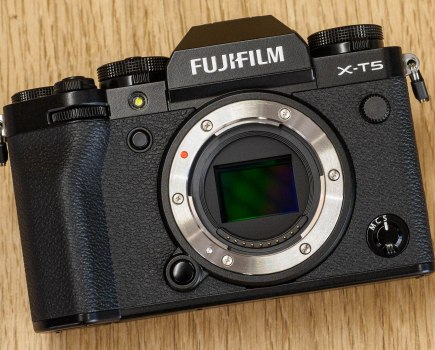 The potential legal pitfall emerged during a dispute between a camera dealer and photo enthusiast Ian Douglas (pictured above) over a suspected faulty lens [© Charlotte Douglas]
The potential legal pitfall emerged during a dispute between a camera dealer and photo enthusiast Ian Douglas (pictured above) over a suspected faulty lens [© Charlotte Douglas]
PayPal, a popular system that allows consumers to transfer payments quickly online, has 179 million active customer accounts worldwide, including 20 million in the UK.
However, Ian Douglas, a keen photographer from Devon, said he learned a ‘valuable lesson’ after buying a lens and seeking redress when it ‘could not take a sharp picture’.
When Ian suspected a fault with the lens, he contacted the store where he had bought it online, but they only offered to repair the item, rather than replace it.
Unhappy with that option, he expected his credit card company to fully reimburse him.
However, Ian became aware of a potential legal drawback after realising he had bought the lens by transferring the funds via PayPal from the credit-card account.
He had decided to use the PayPal option, rather than paying direct from his credit-card account, because his credit card was in another room at home and he knew his PayPal password.
Loss of statutory rights
Ian feared he had lost his rights to protection under Section 75 of the Consumer Credit Act 1974 because the law doesn’t apply to purchases over £100 when the payment is made via PayPal from a credit-card account.
In contrast, if payment is made to the retailer directly using a credit card, then the law states that the creditor (the credit card company, in this case) is jointly liable with the supplier in any subsequent claim by the customer for ‘misrepresentation or breach of contract’.
But for Section 75 to come into play, there has to be a direct relationship between the buyer and seller of the product. PayPal, like other agencies, is classed as a third party.
A spokesman for the Financial Ombudsman explains further, telling Amateur Photographer (AP): ‘Section 75 of the Consumer Credit Act is a great piece of legislation that gives you lots of rights from your credit provider if goods or services you pay for don’t turn up or are broken/not as advertised. But, as with other types of consumer protection, it doesn’t cover you for every set of circumstances.
‘One of the rules that’s important in making a claim under Section 75 is that you need to have a direct relationship with the seller of the goods or services, and that you haven’t gone through a third party. This is known as the “Creditor-Debtor-Supplier” rule.
‘A good example of this is when you buy concert tickets. If you buy direct from the venue, then Section 75 might apply (if it’s over £100). If you buy through a ticket agency, then it won’t.
‘The same goes for PayPal. Because you are “paying” PayPal rather than the supplier, the link is broken and you can’t make a claim under Section 75.’

‘Buyer protection’
Although PayPal offers its own buyer protection scheme, this is considered inferior to Section 75.
For example, there is no time limit to make a claim under Section 75, but consumers must raise a dispute with the seller within 180 days of payment to qualify for PayPal buyer protection. PayPal also requires the buyer to raise a claim with PayPal within 20 days of this date.
The item must also be deemed as ‘significantly not as described’, as defined by PayPal. A product that fails to meet a customer’s ‘expectations’, but was ‘correctly described’ by the seller, would not fall under this definition. Items not covered include vehicles.
A PayPal spokesperson told AP that the buyer-protection service, which is free, would apply to purchases made using a credit card.
In 2014, PayPal extended its UK buyer-protection scheme to include digital goods, travel tickets and other intangible items. Previously, the cut-off time to raise a dispute with a seller was 45 days.
Ian, a retired software engineer, said the camera store eventually agreed to replace his lens.







